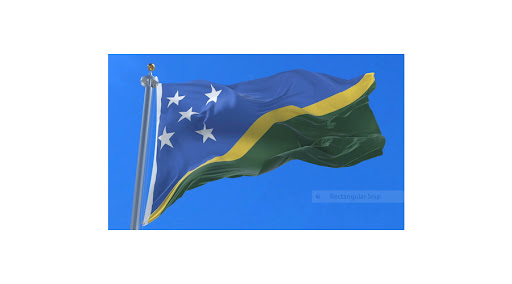The spread of the Covid virus in Honiara and the potential for its wider spread into more of the provinces has put another tier, in my way of thinking, to the level of real problems still besetting the Solomon Islands since independence in 1978.
I think first of the national health services, urban drift occasioned largely by over-population and the lack of employment, job creation, education and gender-equality, to cite merely a few.
I really don’t want to bring politics to play in examining what might be possible in remedying say three of the problems still lingering, but 40 odd years since 1978 I have to ask myself how much longer will Solomon Islands have to contend with its deficiencies without a meaningful and direct injection of support from one or all of its diplomatic allies and international agency friends?
I am not unmindful of what diplomatic aid has done to-date and, as much as a country should not be wholly dependent on outside assistance, I really believe the time is right for a greater effort to lift the Solomons out of the stagnation it seems to be remaining in.
The Solomon Islands decided to switch diplomatic ties to the Government of China (PRC) and this raised eyebrows, and still does, both at home and abroad because of the new reality and sensitivity of the geo-political situation in the Pacific.
Many that had comments to make of the “switch” had their own diplomatic ties with the PRC and still do.
China is assisting the Solomon Islands with its preparations ahead of the Pacific Games to be hosted in Honiara in 2023 and one must hope the ongoing Covid situation will have been brought under control by then.
I look at China today, through the eyes of senior citizen that has seen its rise since my time in Hong Kong in the early 1960s and reflect on the vast changes in the intervening period, and even before, since the days of the so-called ‘Ping Pong’ diplomacy brought about the recognition of China by the United States.
What then am I leading up to? Well simply to say China has the ‘clout’ to change things for the better in the Solomon Islands if things are handled in the right way and the SI government does not succumb to debt dependency as some other present day partners of the PRC are reported to have done.
Is there scope for compromise on the PRC’s presence in the Solomon Islands, including a realistic understanding of the situation by other partners of the SIG?
I would hope there can be because the “clout” I cited could hopefully see investment and change in the home heath services, job creation, education and in gender equality.
Why do I say this? Here are some facts.
The PRC has said it will update medical services in the Solomons but hasn’t yet said when. Annual report for 1997 described that
China is now one of the world’s fastest growing economies and more than 300 million of its people lifted out of poverty and the meteoric change in development and its economy, according to the Chinese Government, brought about by policies in accordance with the United Nations 1986 Declaration on the Right to Development
The Chinese people of today enjoy a vastly superior average standard of living than very evidently their predecessors did only forty years ago.
The Chinese Government often stresses that human rights should encompass ‘economic’ standards of living and measures of health and economic prosperity, claiming that economic, cultural, historical and political situations differs substantially between countries.
In the South Pacific nation states today, the issues of gender equality are much debated and a great deal still needs to be done to overcome cultural taboos that still prevent women’s emancipation to positions of leadership in politics, in government and in business.
I contrast the situation with women’s rights in China these days.
Gender equality was enshrined in China’s 1954 Constitution, and policies were implemented which sought to make it easier for Chinese women to divorce, own property, enjoy the benefits of education and attain equal pay.
Efforts to promote the rights of women have continued to play an important role in China’s policies, the 1982 Constitution expanded on the groundwork laid by the 1954 Constitution.
China was among the first countries to ratify the UN’s Convention on the Elimination of all forms of Discrimination against Women (CEDAW) and protection of rights and interests of women,’ the 1994 law ‘on maternal and infant healthcare’ and the 2005 revised law ‘on the protection of rights and interests of women.
To put things into perspective, however, the Chinese Government still has much to do because women make up only half of China’s workforce and on average.
Yes, I have touched on politics once again, but only in what I see could see changes in the Solomons that are vital to its future and to the needs of its people. I hope my intrusion from charity support to a subject a little more serious on my part might be forgiven.
Yours sincerely
Frank Short



